Latest News
19 March 2020
Time to spare? Take an online course!

The coronavirus crisis means that many people have little or no work right now, or extra time on their hands because of cancelled appointments. For some of these people, this might be the perfect time to take an online course.
16 March 2020
Millions of euros to improve to improve the Rhine-Alpine freight corridor
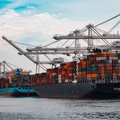
Container ships that aren’t fully loaded, congested locks resulting in long waits for vessels, suboptimal navigation of ships on rivers and fully loaded ships that cannot cope with low water levels. These are common problems on inland waterways. The Horizon 2020 programme ‘Novel inland waterway transport concepts for moving freight effectively’ (NOVIMOVE) is going to use a European grant of almost 9 million euros to conduct research on how to improve the logistics of this transport system.
10 March 2020
Researchers organically engineer solar cells using enzymes in papaya fruit
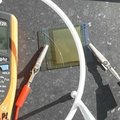
Titanium dioxide (titania) thin films are commonly used in various types of solar cells. The fabrication methods that are currently used to create such titania films require high temperatures, as well as expensive, high-end technologies. Researchers at Delft University of Technology (TU Delft) have now developed a fully organic method to engineer porous titania thin films at relatively low temperatures.
10 March 2020
The Digital Human Capital Agenda of The Hague for ‘digital talent’
The City of The Hague and over twenty businesses and educational institutions will jointly educate, train and re-train thousands of people as ‘digital talents’
04 March 2020
Zigzag DNA
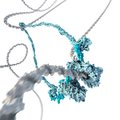
DNA in a cell can normally be compared to spaghetti on one’s plate: a large tangle of strands. To be able to divide DNA neatly between the two daughter cells during cell division, the cell organises this tangle into tightly packed chromosomes. A protein complex called condensin has been known to play a key role in this process, but biologists had no idea exactly how this worked. Until February 2018, when scientists from the Kavli Institute at Delft University of Technology, together with colleagues from EMBL Heidelberg, showed in real time how a condensin protein extrudes a loop in the DNA. Now, follow-up research by the same research groups shows that simple bundling up such loops is by no means the only way condensin packs up DNA. The researchers discovered an entirely new loop structure, which they call the 'Z loop'. They publish this new phenomenon in Nature on 4 March, where they show, for the first time, how condensins mutually interact to fold DNA into a zigzag structure.
04 March 2020
TU Delft proud of high positions in the global QS Subject Ranking
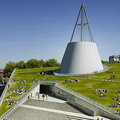
The World University Rankings by Subjects 2020, published today, places TU Delft in 15th place in the broad category of Engineering & Technology.
03 March 2020
Royal HaskoningDHV opts for TU Delft Campus
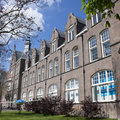
Royal HaskoningDHV opens a branch for 800 employees in Delft, an international hub in the field of technology, innovation and knowledge development.
02 March 2020
The magnet that didn’t exist
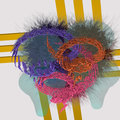
28 February 2020
The voice of the patient
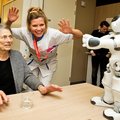
The use of technology is unavoidable to keep healthcare affordable and accessible, but its implementation must go hand in hand with respect for patient values, says trauma surgeon Maarten van der Elst. He has been appointed to TU Delft’s Reinier de Graaf chair for the coming five years and is holding his inaugural address on 4 March.
26 February 2020
TU Delft climate arboretum

Wednesday 18 March, National Tree Day (Nationale Boomfeestdag), will see the opening of the first climate arboretum at TU Delft.
